What Grows Well with Asparagus: 15 Companion Plants
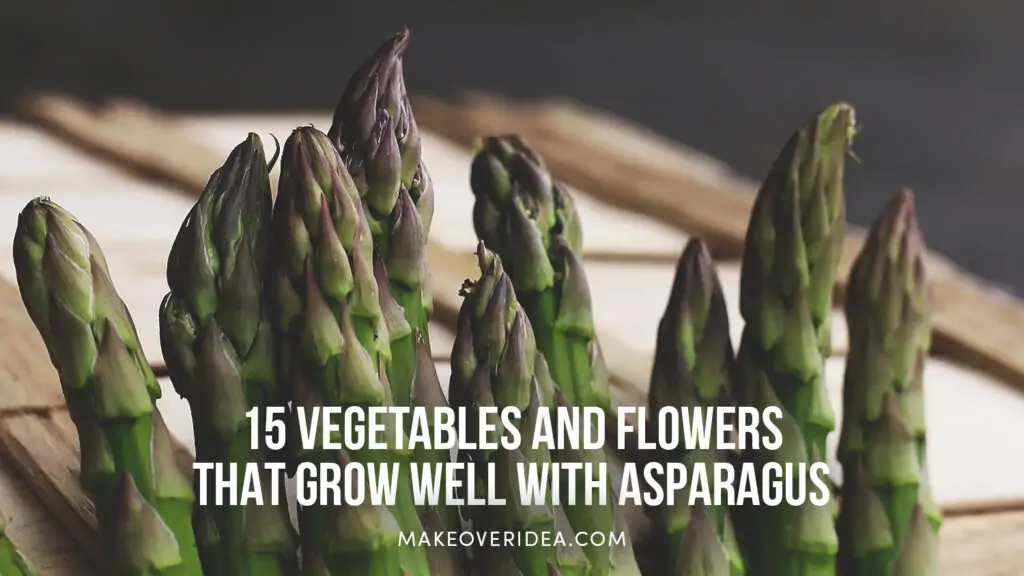
What grows well with asparagus is a truly important question as the health and productivity of this vegetable can be greatly enhanced by finding the ideal companions for your asparagus rows. The significance of asparagus companion planting, the advantages it offers, and the best plants that are ideal to plant near asparagus will all be covered in this article. Let’s start now!
The Value of Growing Asparagus with Companions
When properly cared for, asparagus is a perennial vegetable that can yield succulent, soft spears for many years. The idea of growing various plants together to develop a mutually beneficial connection is known as companion planting, and it is one of the greatest ways to guarantee healthy, blooming rows of asparagus.
Companion Planting’s Advantages
Many benefits of companion planting include:
- enhanced pest management through the attraction of beneficial insects and pest repulsion
- improved soil nutrient availability
- improved flavor and aroma of your vegetables
- your garden’s biodiversity will increase
Asparagus’s Place in Your Garden
With a long-lasting, low-maintenance crop that can produce delectable spears for up to 20 years, asparagus can be an essential part of your garden. It also functions as a living mulch, which inhibits weed development and stops soil erosion.
Best Plant Companions for Asparagus
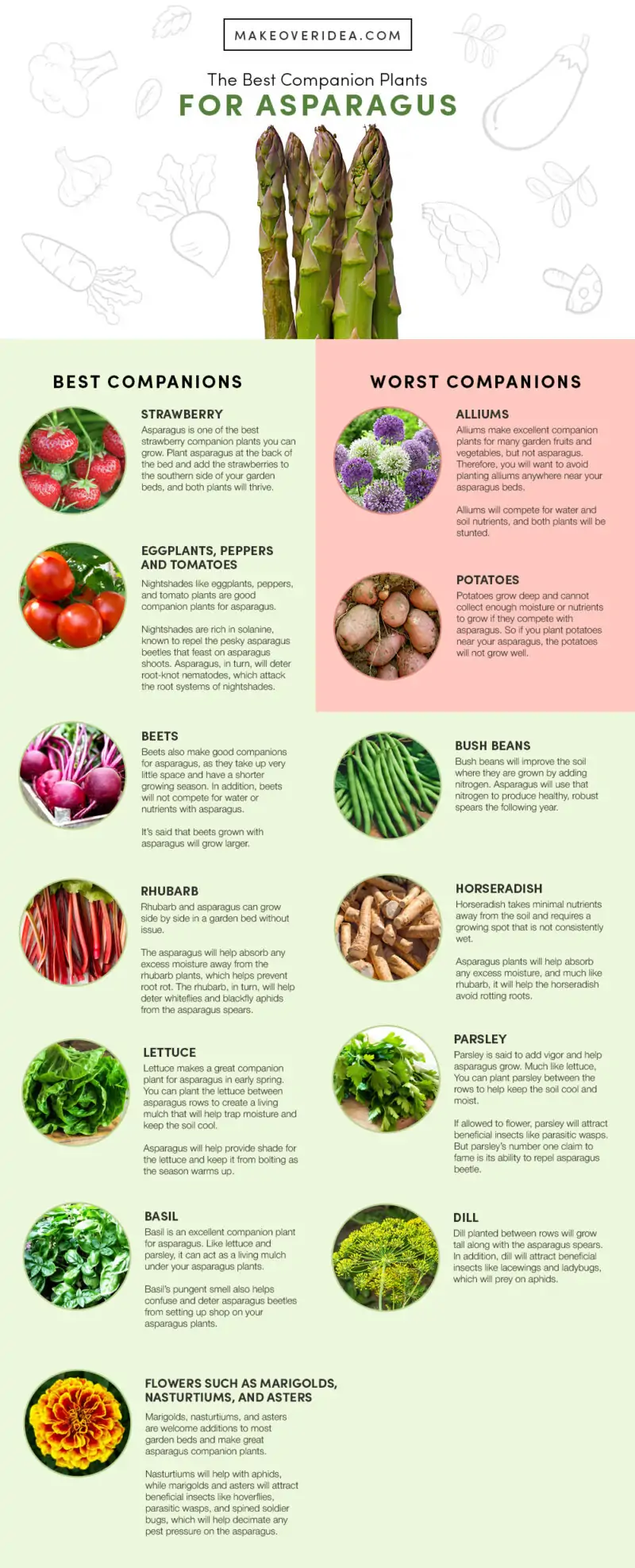
This section will discuss the best plants to cultivate with asparagus to enhance its flavor, growth, and insect resistance.
Tomatoes and Asparagus Go Well Perfectly
Due to their similar growing environments and ability to ward off pests such as asparagus beetles, tomatoes and asparagus do well together. They are a perfect combination because they don’t compete with one another for nutrients.
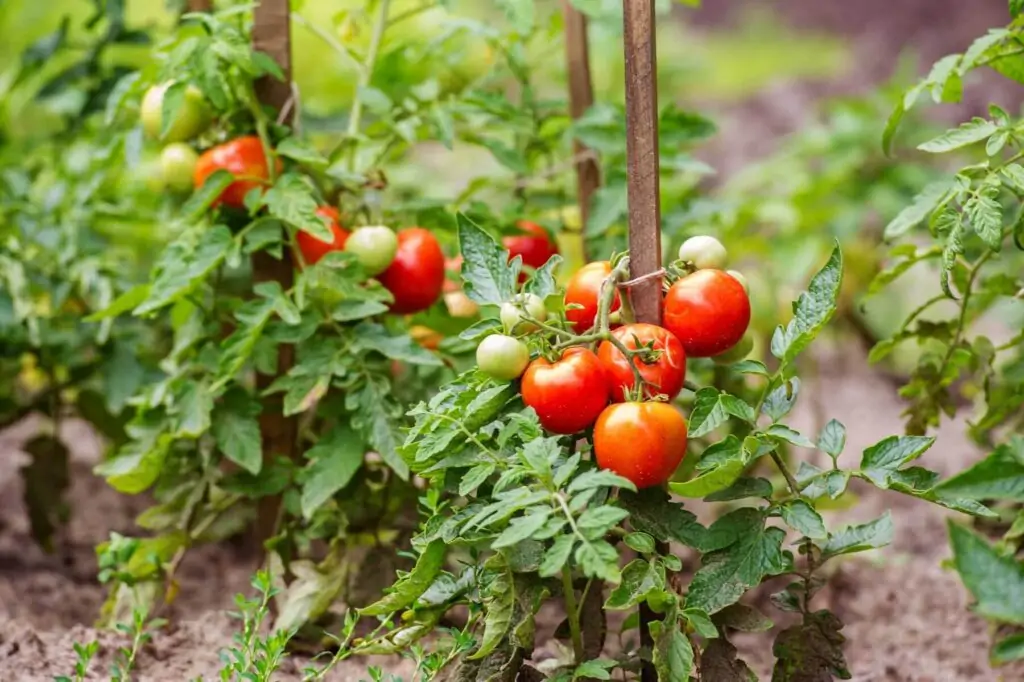
Basil: Increasing Taste and Defense
Basil protects your asparagus by luring helpful insects and warding off pests in addition to enhancing the flavor of your asparagus.
A Natural Pest Deterrent: Parsley
Being a plant with shallow roots, parsley won’t compete with asparagus for resources. Also, it works well to keep pests like asparagus beetles away.
More Great Asparagus Partners
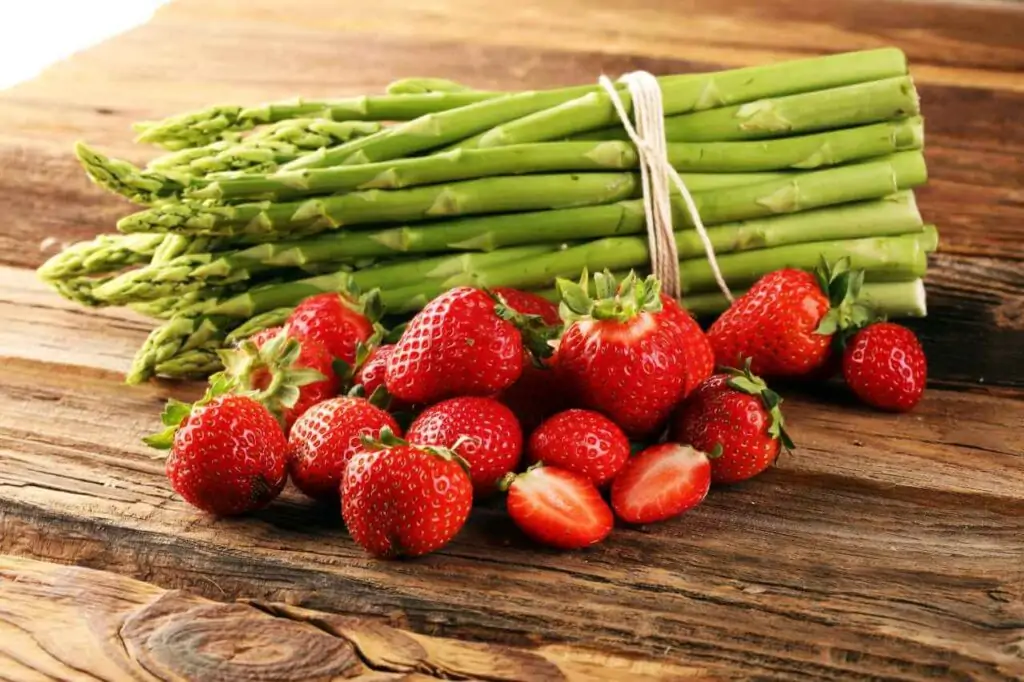
- Strawberry Plant: Because to their shallow root system and capacity to inhibit weed growth, strawberries make very good companions for asparagus.
- Tomato plants, peppers, and eggplants: All of them make good companions for asparagus as these plants help deter pests and have comparable growing circumstances to this vegetable.
- Beets: Beets is a good asparagus companion as it assists strengthen soil structure and don’t compete with asparagus for nutrients.
- Bush beans: These nitrogen-fixing plants improve the soil, giving asparagus vital minerals.
- Rhubarb: As rhubarb is a perennial, it may cohabit with asparagus without vying for resources.
- Horseradish: Horseradish is known to deter asparagus pests and guards against illness on your asparagus plants.
- Lettuce: Lettuce is great to plant with asparagus as it can help control weed growth.
- Dill: Dill makes a great companion plant as it attracts beneficial insects and deters pests like asparagus beetles and aphids.
- Flowers like marigolds, nasturtiums, and asters: These flowering plants repel asparagus beetle and other pests and draw helpful insects, enhancing the general wellbeing of your vegetable. What’s more, there is no better ground cover than flowers!
Bad Plant Companions for Asparagus: What to Avoid
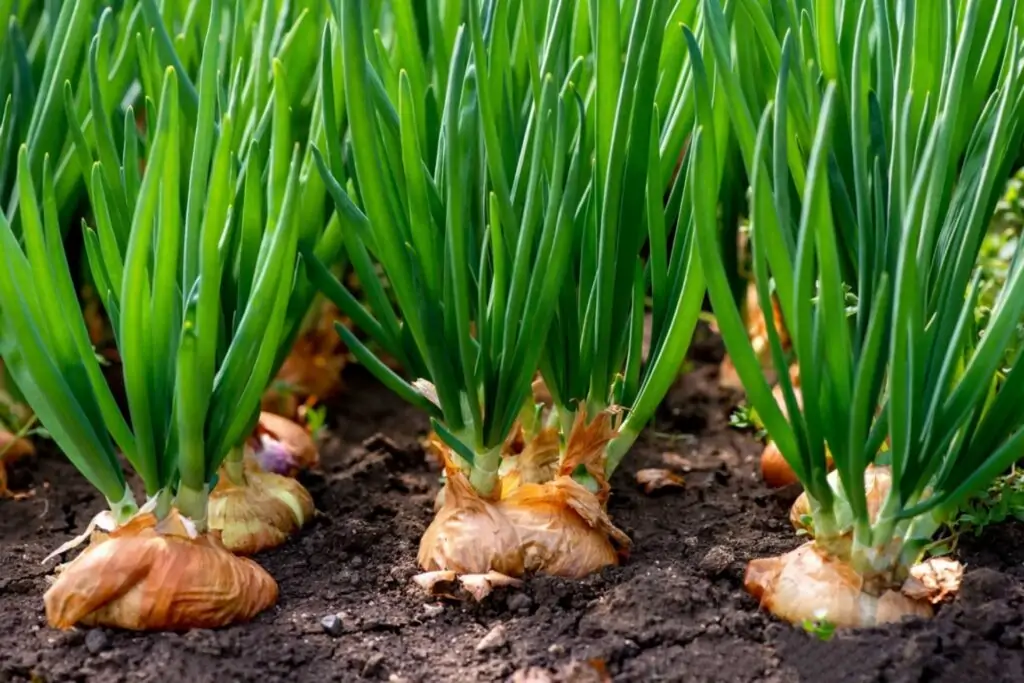
When you plant asparagus, keep in mind that while many plants are great allies for this plant, there are some that you should not grow close to it. These plants might stifle the growth of your asparagus, draw pests, or compete for nutrition. Below you will find the worst companion plants for asparagus.
A Warning About Garlic and Onions
Being members of the allium family, garlic and onions can hinder the growth of asparagus and shouldn’t be planted near asparagus. These plants could stunt the growth of your asparagus plants and possibly draw pests like onion maggots that could harm them.
A Competitive Connection Between Potatoes
Due to their similar nutrient needs, potatoes and asparagus are formidable rivals when grown together. Potatoes can drain the soil of nutrients, reducing the general health and yield of your asparagus: avoid planting them near your asparagus.
Making the Most of Your Vegetable Garden
It’s crucial to choose the appropriate plants to grow with asparagus as well as adhere to best gardening methods when planting and caring for your garden in order to get the most out of your plants.
Suggestions for Growing Asparagus Partners
- Asparagus companion plants should be planted close together to foster a mutually beneficial environment and promote healthy growth.
- Rotate your crops to avoid a buildup of pests and illnesses by rotating your annual companions.
- Considering each plant’s unique requirements. Make sure the plants you select have similar growing conditions to asparagus, such as a predilection for sunlight, water, or soil.
Taking Care of Your Companion Garden and Asparagus
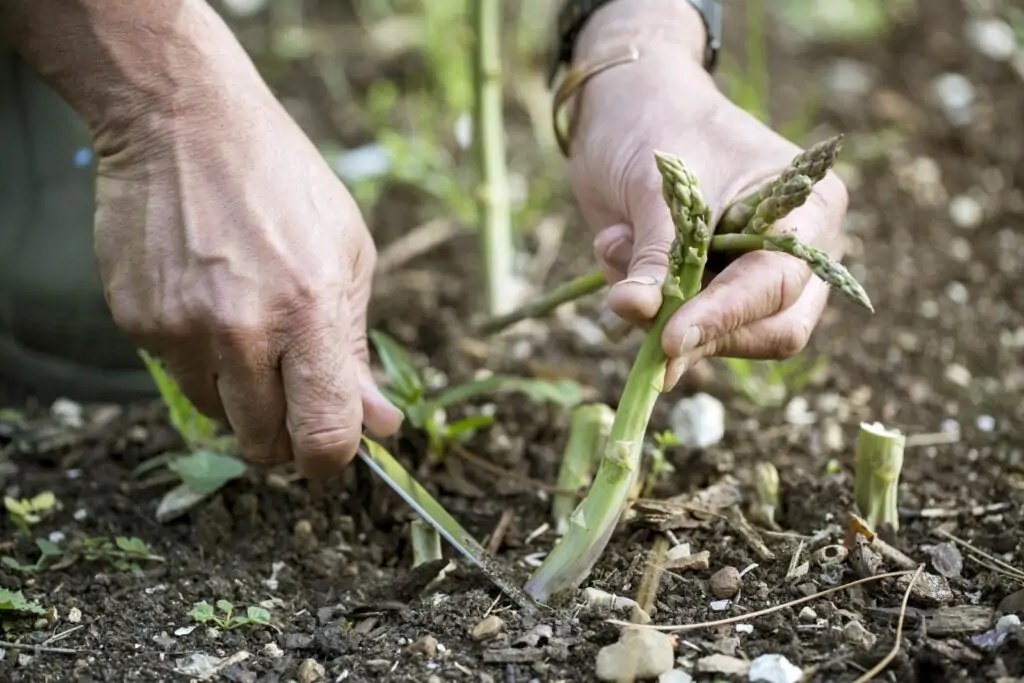
- Water frequently: To thrive, asparagus and its companion plants need frequent irrigation. Make careful to offer enough moisture, particularly during dry seasons.
- Mulch around your plants: Mulch around asparagus and companion plants can aid in moisture retention, weed control, and soil temperature regulation.
- As appropriate, cut and thin your asparagus plants and their companions to encourage healthy development and avoid crowding.
- Keep an eye out for pests and diseases: Keep an eye out for any symptoms of pests or illnesses in your companion plants for asparagus, and take immediate action to safeguard your plants.
- Add a balanced fertilizer to your asparagus and its companions to make sure they get the nutrients they require to grow strong and healthy. Fertilize as necessary.
You can build a thriving, fruitful vegetable garden that will give you wonderful, fresh asparagus for years to come by using these suggestions and the proper companion plants.
Question and Answer Section
In this section you will find the answers to the questions about the best companion plants for asparagus.
The quantity of companion plants you should employ with asparagus is not subject to any precise guidelines. Striking a balance between giving your asparagus enough friends to benefit from them without overloading your yard is crucial. Assess the size of your asparagus patch while selecting a range of companion plants that will work well together and benefit your asparagus plants the most.
With your asparagus bed, you can mix up different companion plants. In reality, growing a variety of companion plants can offer several advantages, including luring beneficial insects, warding off pests, and enhancing soil health. To make sure they are compatible with both asparagus and one another, just be sure to research the growing requirements for each plant.
Conclusion
Finding companion plants that will benefit each other and foster a happy, healthy garden is crucial when determining what grows well with asparagus. You can get the most out of your asparagus bed by choosing the correct partner plants like tomatoes, basil, and parsley, and avoiding plants that can inhibit asparagus growth, like garlic, onions, and potatoes. To guarantee a fruitful growing season, keep in mind the advice for planting and caring for your asparagus and companion garden.